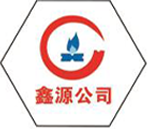
Oct . 31, 2024 16:22
Back to list
Regulating Valve Mechanisms for Efficient System Control in Engineering Applications
The Importance of Regulating Valves in Industrial Applications
Regulating valves play a crucial role in various industrial processes, ensuring the efficient and safe operation of systems that rely on the controlled flow of fluids. By adjusting the flow rate, pressure, and temperature, regulating valves help maintain optimal conditions within pipelines and equipment, thereby contributing to overall process efficiency and safety.
.
One of the key advantages of using regulating valves is their ability to maintain system stability. In many industrial environments, fluctuations in pressure or flow can lead to equipment damage, product quality issues, or hazardous situations. For instance, in a chemical processing plant, maintaining the right pressure and temperature is critical to ensuring the safe and efficient reaction of raw materials. A regulating valve can automatically adjust to changes in the system, preventing conditions that might lead to a potentially dangerous situation.
صمام تنظيم

Additionally, regulating valves are essential for energy conservation. By controlling the flow and pressure in a system, these valves can significantly reduce energy consumption. For example, in heating and cooling systems, properly regulated valves can ensure that energy is used efficiently, thus lowering operational costs and minimizing environmental impact.
Another important aspect of regulating valves is their contribution to process automation. In modern industrial applications, automation has become a necessity for enhancing productivity and reducing human error. Regulating valves can be integrated into automated control systems, allowing for real-time monitoring and adjustments. This integration facilitates data collection and analysis, enabling engineers to make informed decisions about system performance and maintenance needs.
Furthermore, the selection of the right regulating valve for a specific application is critical. Factors such as the fluid type, flow characteristics, pressure ratings, and temperature range must be considered. Proper valve sizing and selection not only optimize system performance but also enhance the durability and lifespan of the valve itself.
In conclusion, regulating valves are indispensable components in a wide array of industrial processes. Their ability to control and stabilize fluid flow contributes to operational efficiency, safety, and energy conservation. As industries continue to evolve and embrace automation, the role of regulating valves will only grow in importance, underscoring the need for continued innovation and improvement in valve technology. As we look ahead, investing in high-quality regulating valves and their associated control systems will be vital for maintaining competitive advantages in an increasingly demanding market.
Latest news
-
Safety Valve Spring-Loaded Design Overpressure ProtectionNewsJul.25,2025
-
Precision Voltage Regulator AC5 Accuracy Grade PerformanceNewsJul.25,2025
-
Natural Gas Pressure Regulating Skid Industrial Pipeline ApplicationsNewsJul.25,2025
-
Natural Gas Filter Stainless Steel Mesh Element DesignNewsJul.25,2025
-
Gas Pressure Regulator Valve Direct-Acting Spring-Loaded DesignNewsJul.25,2025
-
Decompression Equipment Multi-Stage Heat Exchange System DesignNewsJul.25,2025

